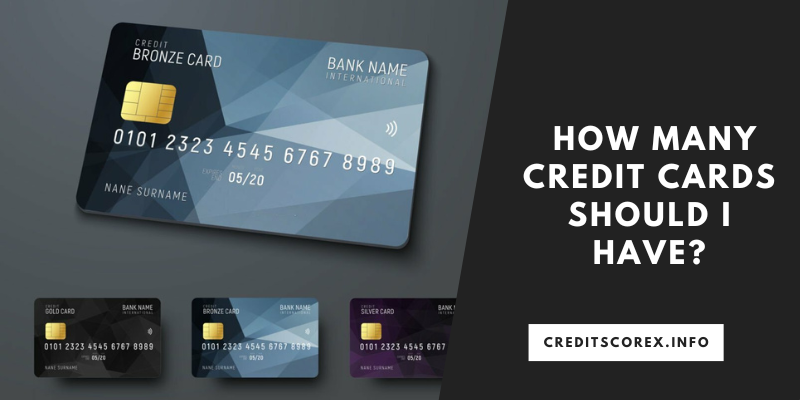
The question of how many credit cards one should have is a common dilemma for consumers navigating the complex landscape of personal finance. While credit cards offer convenience, rewards, and the opportunity to build a positive credit history, it’s crucial to strike the right balance to avoid potential pitfalls. In this article, we’ll explore factors to consider when determining how many credit cards you should have and offer insights to help you make an informed decision.
1. The Importance of Credit Cards: Tools for Financial Management
Credit cards serve various purposes in personal finance, including:
- Building Credit History: Responsible use of credit cards contributes to a positive credit history, a key factor in credit scoring.
- Convenience and Security: Credit cards provide a convenient and secure way to make purchases, both in-store and online.
- Rewards and Benefits: Many credit cards offer rewards programs, cashback incentives, and additional perks such as travel benefits or extended warranties.
- Emergency Fund: Credit cards can serve as a financial safety net in emergencies, providing immediate access to funds.
2. Key Factors to Consider: Finding Your Credit Card Comfort Zone
When deciding how many credit cards you should have, consider the following factors:
- Credit Score Impact: Opening multiple credit cards within a short period can result in multiple hard inquiries, potentially impacting your credit score. However, responsible credit use over time can have a positive effect on your score.
- Credit Utilization Ratio: This ratio, the amount of credit you’re using compared to your total credit limit, is a crucial factor in credit scoring. Opening additional credit cards can impact this ratio positively or negatively, depending on how you manage them.
- Financial Discipline: More credit cards require more financial discipline. Juggling multiple cards and payment due dates can become challenging if not managed carefully.
- Rewards and Benefits: Consider the rewards and benefits offered by each credit card. Having a mix of cards that cater to your spending habits and lifestyle can maximize the value of your credit card portfolio.
3. Finding the Right Number: Personalized Approach
There is no one-size-fits-all answer to the question of how many credit cards you should have. Your ideal number depends on your financial goals, spending habits, and ability to manage multiple accounts responsibly. Here are some scenarios to consider:
- One or Two Cards: For some individuals, one or two credit cards may be sufficient for building credit and meeting their spending needs. This approach simplifies financial management and reduces the risk of overspending.
- Diversified Portfolio: Others may benefit from a more diversified credit card portfolio, strategically selecting cards with different rewards structures or benefits. For example, one card may offer cashback on everyday purchases, while another provides travel rewards.
- Specialized Cards: Individuals with specific spending patterns, such as frequent travelers or avid shoppers, may find value in specialized credit cards that cater to their preferences. These cards often offer enhanced rewards in specific categories.
- Minimalist Approach: Some individuals prefer a minimalist approach, intentionally limiting the number of credit cards to reduce complexity and minimize the risk of overspending.
4. Credit Score Considerations: Impact of New Accounts
Opening new credit accounts, including credit cards, can have both positive and negative effects on your credit score:
- Positive Impact: Over time, responsible use of additional credit can contribute to a positive credit history, potentially improving your credit score.
- Negative Impact: Opening multiple new credit cards within a short period can result in multiple hard inquiries, potentially lowering your credit score temporarily.
5. Strategies for Managing Multiple Credit Cards: Best Practices
If you decide to have multiple credit cards, consider implementing the following best practices:
- Set Reminders for Due Dates: Missing payment due dates can have a significant impact on your credit score. Set reminders or use automatic payments to ensure timely payments.
- Monitor Your Credit Utilization: Keep an eye on your credit utilization ratio to avoid carrying high balances on multiple cards. Aim to keep this ratio low to positively impact your credit score.
- Review and Adjust as Needed: Regularly review your credit card portfolio to ensure that each card aligns with your financial goals and spending habits. Consider closing cards that no longer provide significant value.
6. Seeking Professional Advice: Financial Counselors and Advisors
If you’re uncertain about the number of credit cards that align with your financial goals or if you’re facing challenges in managing multiple cards, consider seeking advice from financial counselors or advisors. They can offer personalized guidance based on your unique situation and help you create a strategy for responsible credit use.
Conclusion: A Personalized Approach to Credit Card Management
Determining how many credit cards you should have is a highly personal decision that depends on your financial goals, spending habits, and ability to manage credit responsibly. Whether you opt for a minimalist approach with one or two cards or choose to diversify your credit card portfolio for maximum rewards, the key is to align your credit card strategy with your financial priorities. Regularly assess your credit card usage, make adjustments as needed, and seek professional advice if you’re unsure about the best approach for your situation. By taking a thoughtful and personalized approach to credit card management, you can leverage these financial tools to enhance your financial well-being.
Leave a Reply